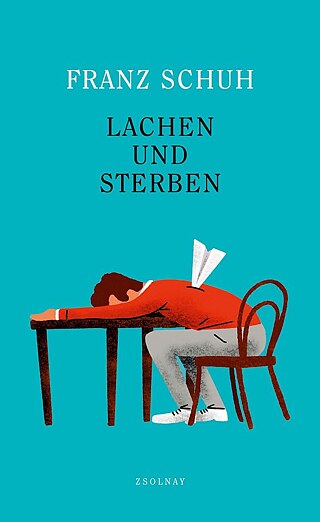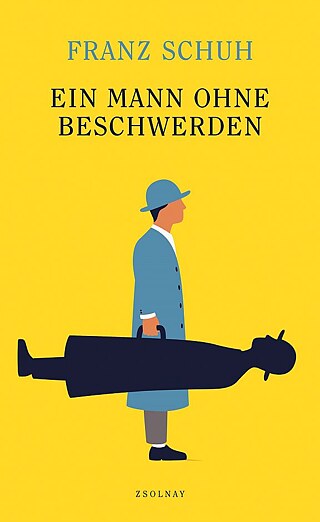Cherrypicker
Brilliant complainer
The Austrian author Franz Schuh has written a new collection of essays in which the interest in death is mutual.
By Holger Moos

Franz Schuh’s new book Ein Mann ohne Beschwerden (A Man Without Complaints) is of course an allusion to Robert Musil’s The Man Without Qualities. Yet Schuh is no more a man without qualities than he is a man without (medical) complaints – though at least he seems at the moment not to have any acutely life-threatening physical problems. Complaining, on the other hand, is something he does with wit, eloquence and relish.
Only death, but make it immediate, please

Nonetheless, Schuh is grateful for the healthcare system in his home country of Austria, as he suspects that he would have been worse off elsewhere: “In America I would simply have been dumped in the trash.” Schuh has one last wish all the same: “If a person becomes ill, one says in Austria that they caught something. I don’t want them to catch me again. I don’t want to catch something again. Only death, but make it immediate, please.”
Dialectic with wit
Thomas Bauer, an Arabist and Islamic studies scholar, wrote an essay in 2018 entitled Die Vereindeutigung der Welt (The Disambiguation of the World), in which he complains about the loss of ambiguity and diversity. He opines that people in our culture and society no longer have virtually any tolerance of ambiguity or contradictions, and that this is also the case in literature.In this regard Franz Schuh is clearly an exception. The philosophy graduate – who wrote his PhD on Hegel – is a classic dialectician, albeit one who combines his dialectic with wit. This is because Schuh was influenced not only by Hegel, but also by the playwright Johann Nestroy (1801-62). It was from the latter that he learnt “what wit is, namely something akin to intelligence that can be recharged by contradictions, by the toing and froing between statements and responses. In this way, certain elements in a life story become intertwined to create knots that bind one until the end of one’s days.” Schuh, on the other hand, never wanted to be tied down, and certainly doesn’t wish to be nowadays: “What could be better than not being tied down in these binding times?”
As revealed by the book’s subtitle “Über Ästhetik, Politik und Heilkunde” (On Aesthetics, Politics and Alternative Medicine), the collection of essays is about so much more. Ambiguity does one good in a world dominated by black-and-white thinking and strong opinions, and Schuh speaks of the “fetishization of one’s own opinion”. That said, some of the essays, above all those of a philosophical nature, can also be challenging, especially as one these days rarely reads such erudite and artfully composed texts so rich in allusions. Schuh’s tirades about his experiences with Austrian Federal Railways, which can be read on the website of the Standard, are a good way in.
Let us hope that Franz Schuh is able to remain for some while yet what he, in his own words, is: “A melancholic person blessed with occasional fits of laughter”. When things get really bad, Schuh likes to refer to this “example of negative dialectics” – as we can see, Schuh has of course also read Adorno – that comes courtesy of Nestroy: “If all else fails – I’ll hang myself.”

Wien: Zsolnay, 2023. 240 S.
ISBN 978-3-552-07360-9
You can find this title in our eLibrary Onleihe.
Franz Schuh: Lachen und sterben
Wien: Zsolnay, 2021. 336 S.
ISBN 978-3-552-07229-9
You can find this title in our eLibrary Onleihe.